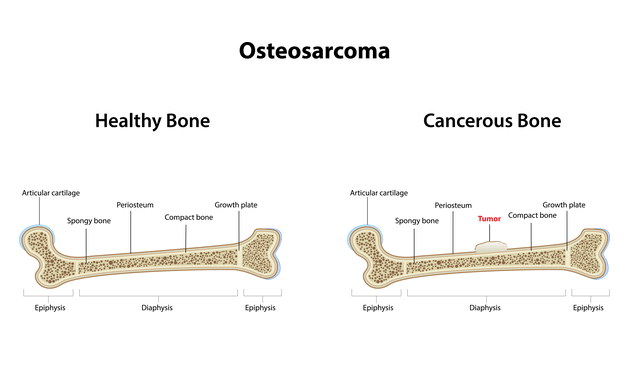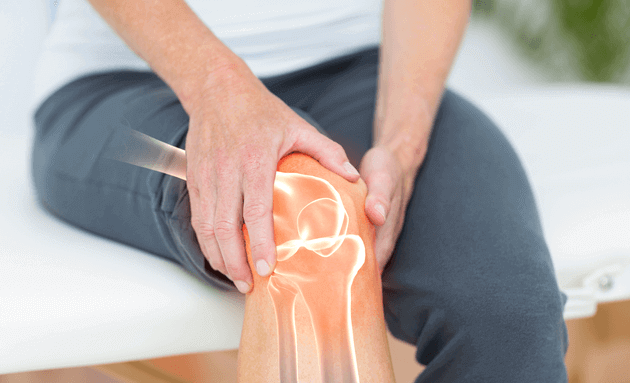How Are Bone Tumours Treated?

What Are Bone Tumours?

Bone tumours form when cells within your bone multiply rapidly and form lumps of abnormal tissues. Bone tumours can affect any bone in your body, from the surface to the centre of the bone (bone marrow). A developing bone tumour, even if it’s benign (tumours that are not cancerous and will not spread to other parts of your body) can destroy healthy tissues and weaken your bones, making you susceptible to fractures and bone pain.
Types of Bone Tumours
There are multiple types of bone tumours. Most of them, however, are benign. The most common types of bone tumours include:
- Multiple Myeloma
- Osteosarcoma (Osteogenic Sarcoma)
- Chondrosarcoma
- Ewings’s Sarcoma
Bone Tumour in India
Bone tumours are rare and form about 0.2% of all cancers in India. Bone tumours can affect two age groups and are divided into peak age (11 years to 20 years) and a secondary peak (51 years to 60 years). It is a very rare form of cancer and affects less than 5,000 people annually.
What Causes Bone Tumours?
Although actual reasons for bone tumours are still being researched upon, it is attributed to diseases like Paget’s disease, Li-Fraumeni syndrome, and hereditary conditions.
Paget’s disease is a rare bone disease that leads to degeneration of your bones over a period of time to a point where it becomes fragile and misshaped.
Li-Fraumeni syndrome is an extremely rare genetic disorder that makes a person more prone to developing cancer than normal.
Bone tumours can also occur in people up to the age of 20 years, people who have undergone radiation therapy, and people with hereditary retinoblastoma (a type of eye cancer that affects children), and people above the age of 51.
What Are the Symptoms of Bone Tumour?

Although bone tumours may not exhibit direct symptoms, here are some of the signs you should watch out for:
- Pain or swelling in the affected area which will be dull, and may worsen at night
- Fever and night sweats
- An injury that can lead to a tumour
What Are the Treatment Methods for Bone Tumour?

Like any other cancer, bone tumours are treated depending on the type, location, and stage of the tumour. The most common treatment methods include:
Surgery
Surgical procedures aim at removing the tumour and some of the bone tissues that surround it. Procedures that do not require amputation of the limb or affected area is called Limb-sparing surgery or limb-salvage surgery.
Radiation Therapy
Radiation therapy involves the use of high-energy X-rays to destroy cancer cells. It damages the DNA inside your tumour cells and inhibits them from multiplying or spreading further. Radiation therapy can help:
- Cure you completely by destroying the tumour
- Relieve pain in more advanced stages of the tumour
- Shrink the tumour so it can be removed surgically
- Eradicate the cancer cells that are left behind after surgery
Chemotherapy
Chemotherapy uses chemicals to destroy the cancer cells growing in your body. It helps by
- Completely curing the patient
- Combine with other therapy to provide better results
- Delay or prevent the recurrence of tumours
- Slow down the progress of cancer cells
- Help relieve symptoms of advanced stages of cancer
Coping with cancer and cancer treatment can be quite challenging. Ensure you have honest and open conversations with your doctor before opting for any method of treatment. Here are some of the questions you should ask your doctor if you’ve been diagnosed with bone tumour:
- What kind of bone cancer do you have?
- Is it a benign or malignant tumour?
- What is the stage of your tumour and what happens at this stage?
- What are the best treatment choices?
- What are the risks involved in the preferred treatment choice?
- What are the side effects that you should worry about?
- What is the time and process of recovery?
- What are the chances of the tumour reappearing even after treatment?

Apart from all these basic questions, ask your doctor anything that’s on your mind. Be it how your life is going to be affected by it to what you should do to prepare for the treatment, ensure you communicate clearly and ask for support when required.






